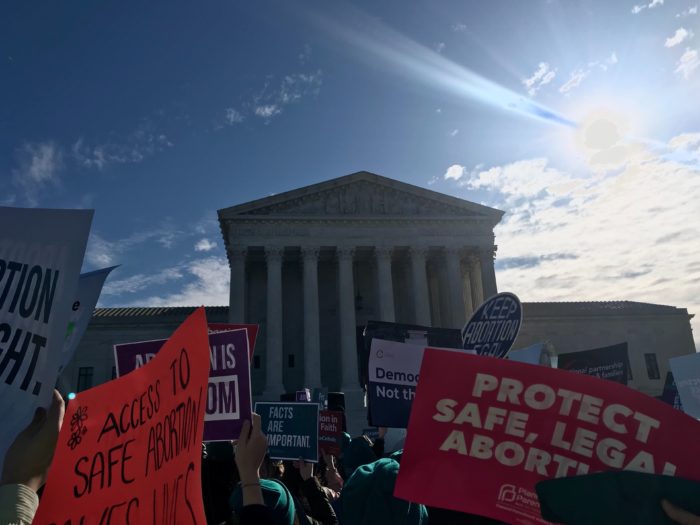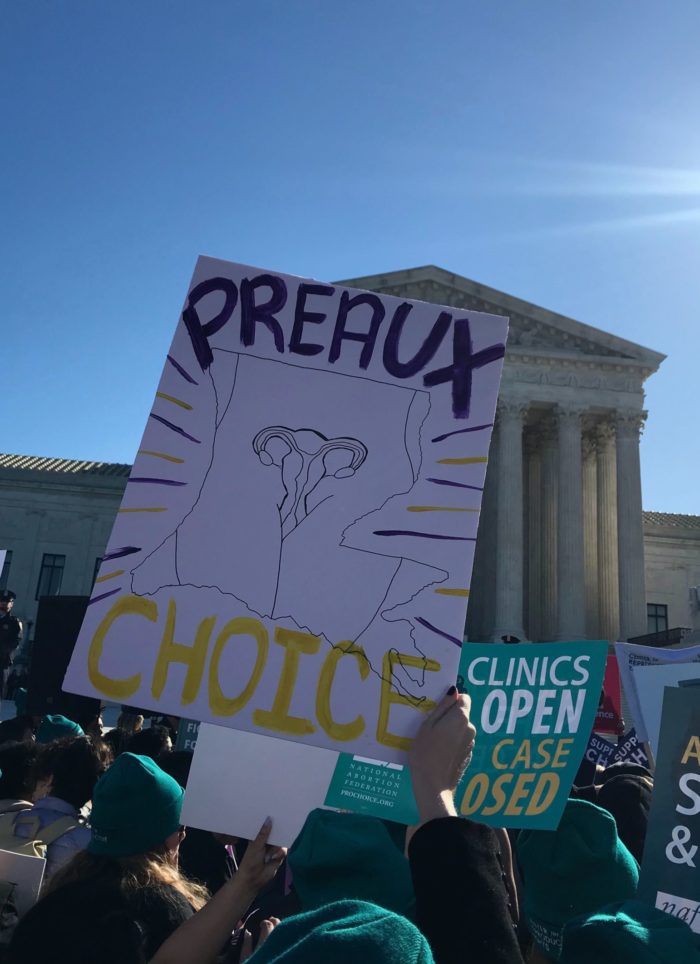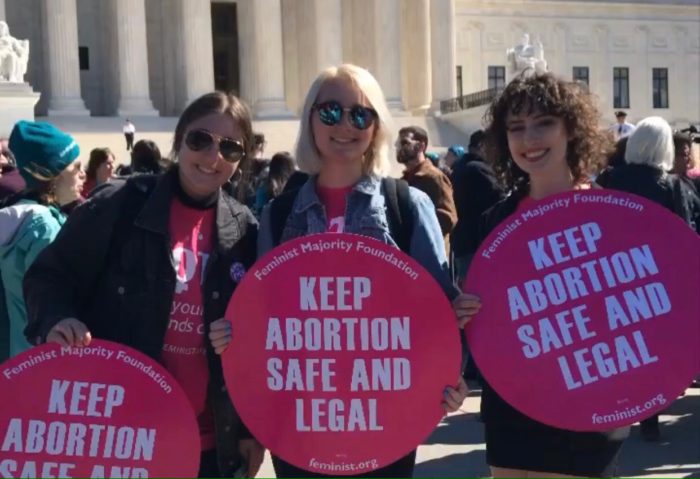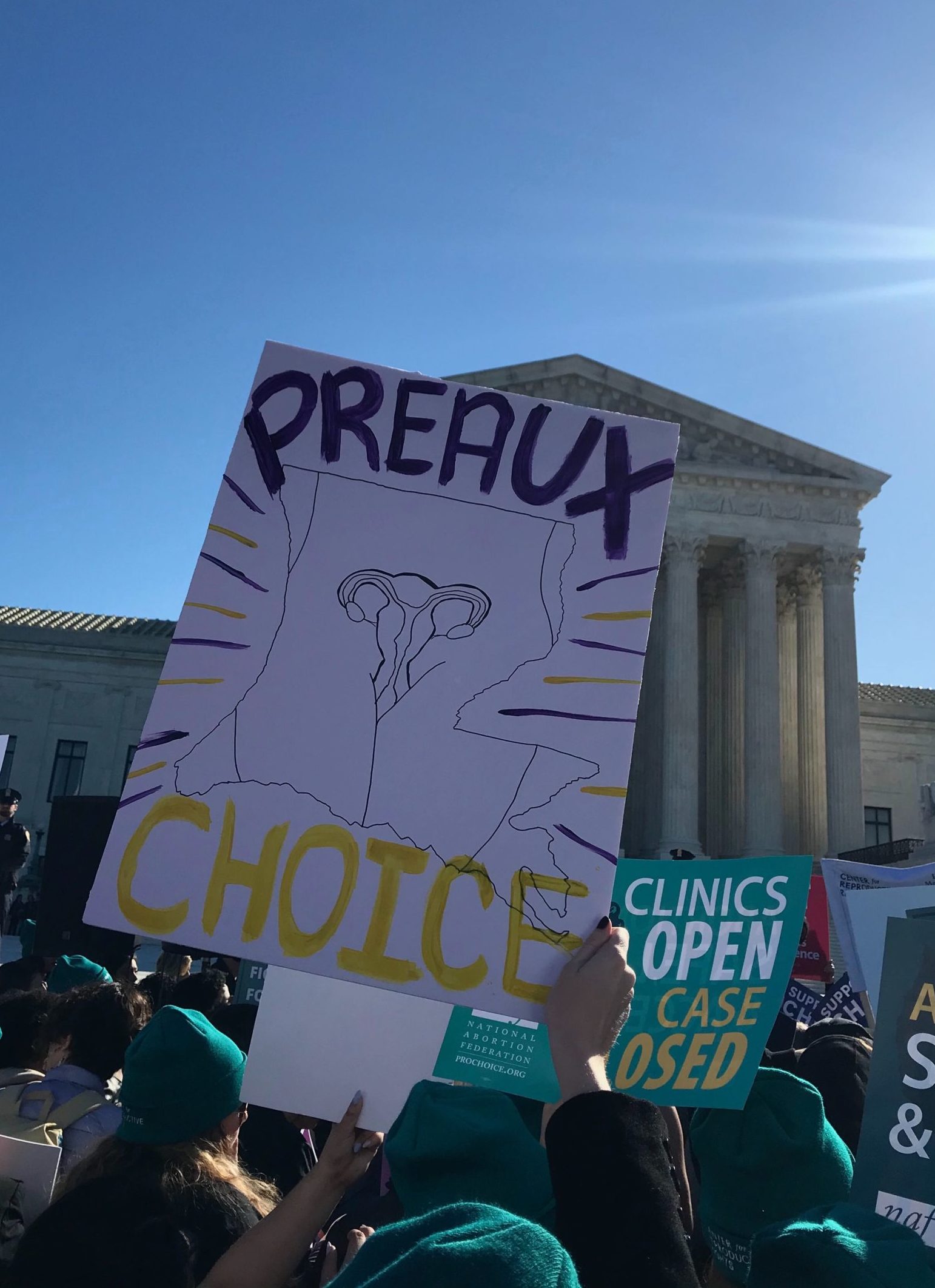
Today the U.S. Supreme Court heard oral arguments for June Medical Services v. Russo to analyze the unconstitutionality of Louisiana’s admitting privileges law. Since 2001, anti-abortion politicians have pushed nearly 450 restrictive laws through legislatures that range from outright bans to medically unnecessary regulations, and humiliating hoops to clinic shutdowns. The issue of states creating admitting laws for abortion providers is an issue that the Court has already decided on once by ruling on an identical law four years ago, and the only thing that has changed in the four years since is the political make-up of the Court.
The Louisiana law argued today is identical to the Texas law that was struck down in 2016’s Whole Woman’s Health v. Hellerstedt case: both require a 30-mile admitting privilege requirement for physicians. Both laws are cover-ups for attempts to shut down clinics and are deviously written to deny people abortion care. Low-income people, people of color, young people, immigrants, and rural communities will be those most affected by the Court’s decision as they already face the greatest obstacles when it comes to accessing health care. And with fewer clinics, there would be greater delays in care, larger distances to travel, longer wait-times, more time called off of work, a loss of income, and higher procedural costs.

Safe and legal abortion care and access should not depend on your zip code, and a law declared unconstitutional in Texas should be deemed unconstitutional in the neighboring state of Louisiana.
Whole Women’s Health already “exposed the lie that anti-abortion politicians have been peddling for years: that its somehow ‘safer’ when the state imposes medically unnecessary, onerous restrictions on health centers and clinicians that provide abortions.” In-clinic abortion is one of the safest outpatient medical procedures, with the risk of complication lower than that of a colonoscopy, wisdom teeth extraction, or tonsillectomy.

Under the U.S. Constitution and precedent set forth by the Supreme Court, it is our right to make our own decisions regarding our bodies, lives, health, and futures. In a “To the Editor” piece published in the New York Times, Sharon Phillips, MD, a specialist in family planning and women’s health, noted that “abortion need not be justified to anyone at any time, nor does a decision to continue a pregnancy require justification.” Each one of us is unique and has been molded or shaped by a set of personal experiences and circumstances that continue to impact our family planning decisions. These decisions, including abortion, are deeply personal, and often life-altering, choices that should never have to be made under the weight of excessive political pressures.
As a fundamental part of bodily equality and autonomy, it is the pregnant individual, and only the pregnant individual, who gets to decide whether or not to have an abortion. Not only do people deserve safe, legal, and accessible abortion care, they have a right to it that is protected by decades of Supreme Court precedent–that we will not allow to be revoked.
“Being here brings me joy, and it brings me hope— hope that we will continue to be loud, hope that we will be angry, and hope that we will be unapologetic, and build community while we fight” @AmyHM @WholeWomans
— Feminist Campus (@feministcampus) March 4, 2020

